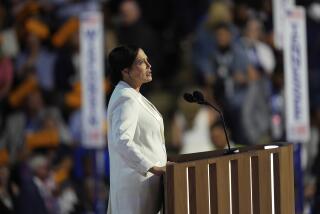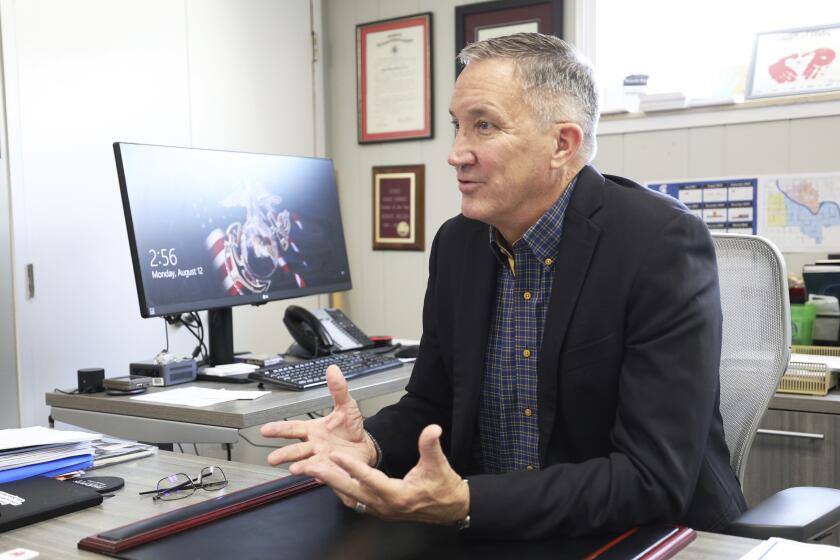Same Borders, Better Living Conditions : Germany: Reunification concerns are premature. East European reforms are based on maintaining the existing security order.
I spent last weekend--where else?--in Berlin, both East and West. Long walks took me through the night--and through the nights of German history, too. Would the same experience in sunlight bring a day of future hopes?
On Sunday morning, I witnessed the opening of the Berlin Wall at the Potsdamer Platz, once the busiest intersection of the metropolis. The mayors of West and East Berlin shook hands. During the long night before, I saw a gathering in front of the Bradenburg Gate--a symbol both of German unity and division--being transformed into more or less a trivial festivity. Sorry about that, but, on the other hand, this added to the simple truth: There was no explosion of nationalistic emotions and expectations whatsoever--just relief and happiness.
He who walks through both the Berlins comes across the monuments and symbols of at least four levels of German history. There are the last traces of the era of Frederick the Great. There are the reminders of a Prussia recovering from the disastrous struggle against Napoleon--a political resurrection that ended in Wilhelminian presumption. Most depressing, however, are the lasting memories of the Nazi regime. This was the site of Hitler’s Reichskanzlei , his chancellery. There stood the central office of the Secret State Police, where much of the torturing took place. Here they burned the books, and over there, the first officers were shot after the assault against Hitler failed on July 20, 1944. Then came the Cold War, culminating in the brutal division of this city and its population.
Now the walls of World War II and the Cold War are shaking. Inevitably, all our neighboring nations--and we ourselves--are asking: Will this history be overcome--or will it start over again? Will reform in East Germany mean a revision of the complete postwar European order?
These are uneasy questions. But I think there are some strong points to be made, which show that the Germans have learned some lessons of history and that even the most unexpected events of the last few weeks have not really changed the basic patterns of European order and concepts.
Certainly, much has changed since Erich Honecker thought that he could proudly celebrate the 40th anniversary of his state on Oct. 7, and then govern on and on. He quickly was ousted. But every Monday the people of East Germany still gather in the streets to demand free elections and the end of the monopoly of power for the Communists. More to keep power than to share it, the Communists made their biggest concessions so far--they opened up the borders and the Berlin Wall. Who knows the day that will bring us the reopening of the Brandenburg Gate, and which of the world leaders will be witnessing the event right at the place?
But none of these acts mean the end of the division of the city and the nation. We are now somewhere back in the years before 1961, not 1949. The struggle for power is far from over in East Germany. The Communists are trying to stay in place and to beef up their position for the inevitable forthcoming elections. Neither the Communists nor their opponents are interested in the reunification of Germany. Even the reformers in East Germany want to do it their way, pursuing a path into a social-democratic society.
Reform in Eastern Europe became feasible only because the perestroika people in Moscow made a distinction between their strategic security interests and their outdated concept of ideological dominance. Mikhail Gorbachev knows that his basic security needs do not depend on whether every prime minister in Eastern Europe wears a red tie. But they will guard their security. The precondition of domestic reform in Eastern Europe and in East Germany is stability of the external order of states.
We have to change the conditions within those states that still lack democracy--but we also have to reform the democratic states and societies because they are far behind from meeting the challenges of our time. In this process, the character of borders will change. But in order to keep this process going on, we have to refrain from one thing--from shifting borders. Within this framework, the German question is not about the number of the states, but about the conditions under which the respective people live. We have to improve these conditions for our fellow countrymen in East Germany. More is not required--and not possible. Where else could you understand this better than under the Prussian-blue skies of Berlin?
More to Read
Sign up for Essential California
The most important California stories and recommendations in your inbox every morning.
You may occasionally receive promotional content from the Los Angeles Times.






